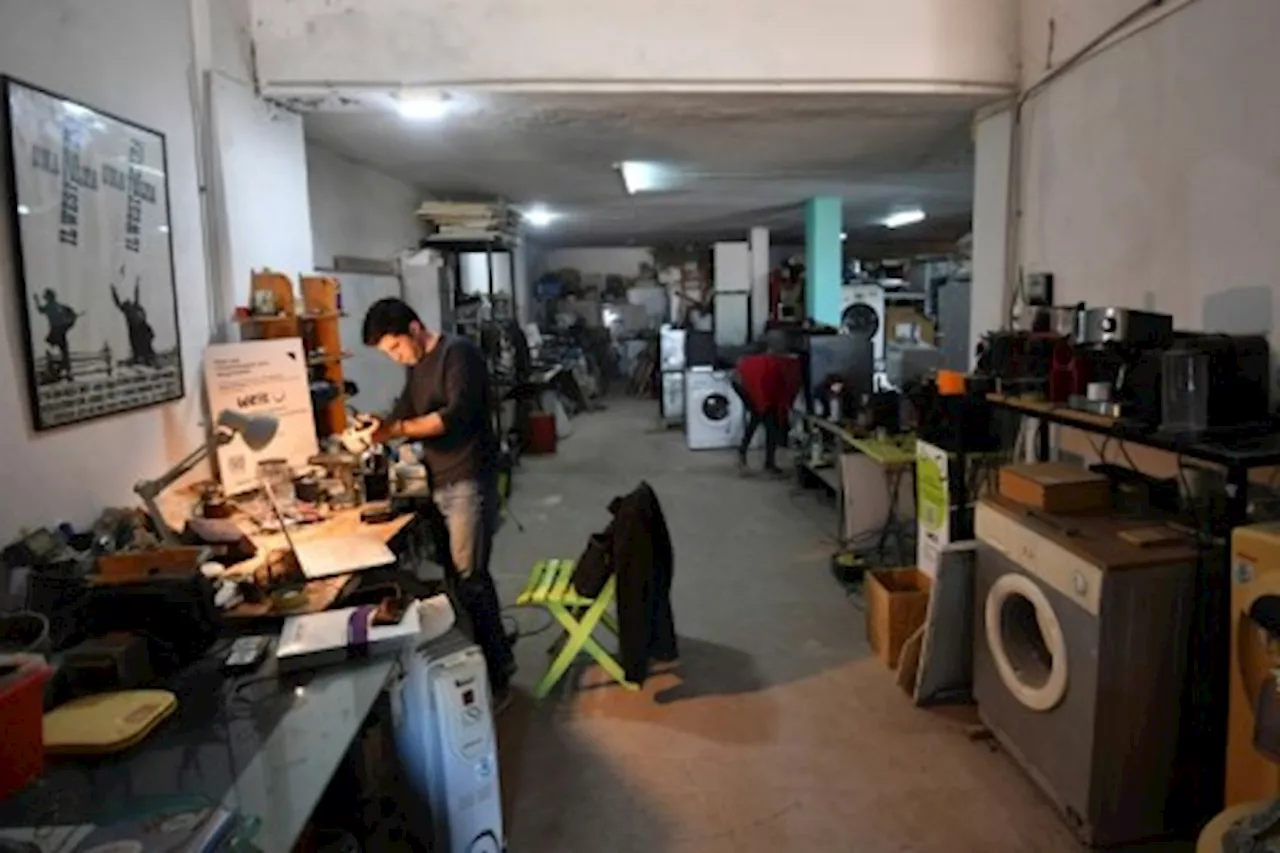WeFix, a Tunisian startup founded by engineer Sabri Cheriha, is tackling the growing issue of electronic waste (e-waste) in the country by offering a comprehensive service for collection, repair, and recycling of used appliances. Cheriha highlights the lack of proper disposal channels for e-waste in Tunisia, where millions of household appliances and mobile phones are discarded annually. WeFix aims to minimize environmental impact, promote social responsibility, and offer economic benefits through affordable refurbished products. While the government is working to address waste management challenges, e-waste remains a significant concern due to the absence of established recycling systems.
Engineer turned social entrepreneur Sabri Cheriha hunches over a washing machine at a small depot in a suburb of Tunisia's capital, the unassuming home of a startup he launched to tackle the country's mounting electronic waste problem. Cheriha said there were currently about eight million household appliances and nine million cellphones in use across Tunisia, but once these devices break down or are replaced, 'there's no service to properly dispose of them'.
WeFix, the startup that won him a second-place regional social entrepreneur award last year, stands out by offering an 'all-in-one service', providing collection, repairs and recycling to reduce e-waste. The aim is to have 'an environmental and social impact, but also an economic gain', Cheriha said, adding that refurbished products can be up to 60 percent cheaper in a country where the average monthly salary is around 1,000 dinars ($310). The startup has 'avoided' 20 tonnes of waste in 2023 and 80 tonnes last year, according to its founder, who anticipates handling another 120 tonnes this year. 'When we talk about 'avoided waste', we're also considering the resources needed to manufacture a single washing machine -- 50 or 60 kilos of finished product require over a tonne of raw materials,' he explained. While Tunisia has vowed to tackle waste in general, e-waste presents a particular challenge, and there is a lack of institutional avenues for dealing with it. Tunisia produces an estimated 140,000 tonnes of e-waste per year, said Walid Merdassi, a waste management expert. The majority of that -- an estimated 80,000 tonnes per year -- is generated by households, which have no official recycling system to turn to, he added. Merdassi said the government should require manufacturers and retailers to take back used machines, and encourage the 13 local companies specialized in recycling to extract and export valuable raw materials like gold, copper, and platinum from the devices they process. In the meantime, WeFix is making strides at its own pace, reducing Tunisian e-waste by promoting the sale of refurbished appliances instead of buying new, Cheriha said. Cheriha eventually hopes to expand WeFix to Morocco, despite the challenges of scaling up nationally, he said. 'Finding skilled workers in the electronics sector is becoming increasingly difficult' as many emigrate to Europe where demand for refurbished appliances is high, he said
E-Waste Recycling Sustainable Technology Social Entrepreneurship Waste Management
South Africa Latest News, South Africa Headlines
Similar News:You can also read news stories similar to this one that we have collected from other news sources.
 Database Engineer - Architecting the Future of AI SolutionsJoin a leading AI startup and build the knowledge graph infrastructure powering cutting-edge solutions.
Database Engineer - Architecting the Future of AI SolutionsJoin a leading AI startup and build the knowledge graph infrastructure powering cutting-edge solutions.
Read more »
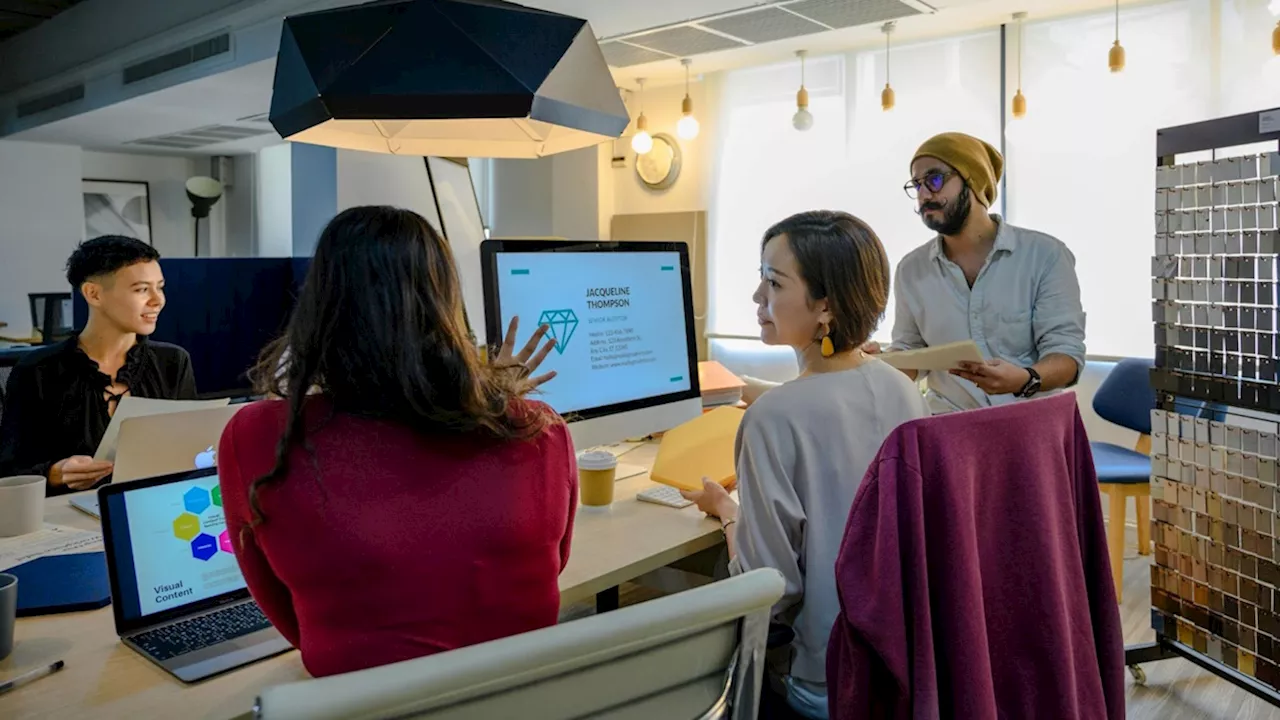 Top Tech Startup Accelerators for 2025This article explores the leading startup accelerator programs designed specifically for tech companies in 2025. We highlight key factors like funding success, alumni network strength, program curriculum, and industry focus to provide a valuable resource for tech entrepreneurs seeking the ideal launchpad for their ventures.
Top Tech Startup Accelerators for 2025This article explores the leading startup accelerator programs designed specifically for tech companies in 2025. We highlight key factors like funding success, alumni network strength, program curriculum, and industry focus to provide a valuable resource for tech entrepreneurs seeking the ideal launchpad for their ventures.
Read more »
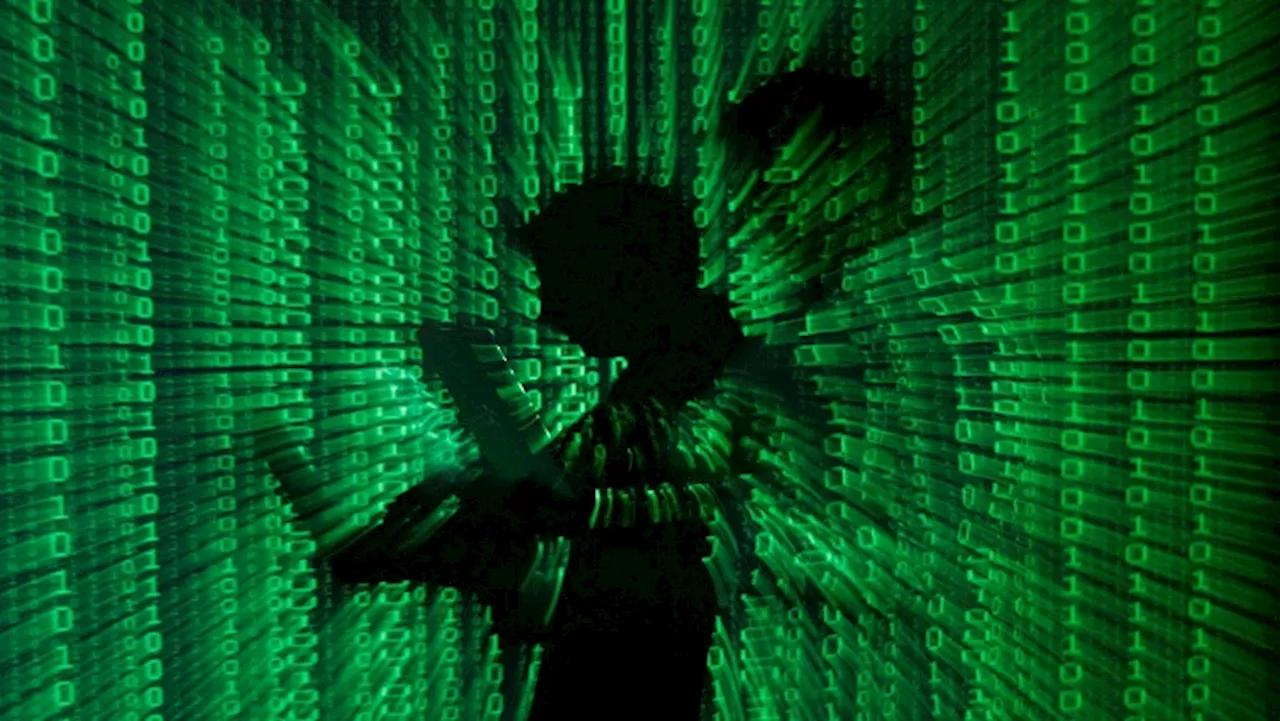 European Regulators Intensify Scrutiny of Chinese AI Startup DeepSeekEuropean data protection authorities are stepping up their investigation into DeepSeek, a Chinese AI startup, raising concerns about its data collection practices. Italy has already banned the chatbot, and regulators in other European countries are questioning DeepSeek's operations. The European Data Protection Board (EDPB) is expanding its efforts to coordinate action against DeepSeek and establish a rapid response team for sensitive AI matters.
European Regulators Intensify Scrutiny of Chinese AI Startup DeepSeekEuropean data protection authorities are stepping up their investigation into DeepSeek, a Chinese AI startup, raising concerns about its data collection practices. Italy has already banned the chatbot, and regulators in other European countries are questioning DeepSeek's operations. The European Data Protection Board (EDPB) is expanding its efforts to coordinate action against DeepSeek and establish a rapid response team for sensitive AI matters.
Read more »
 The Power of AI in Propelling Startup GrowthThis article explores how startups are leveraging artificial intelligence (AI) to achieve rapid growth, gain a competitive edge, and optimize their operations. It highlights the transformative impact of AI on market analysis, customer insights, operational efficiency, and supply chain management.
The Power of AI in Propelling Startup GrowthThis article explores how startups are leveraging artificial intelligence (AI) to achieve rapid growth, gain a competitive edge, and optimize their operations. It highlights the transformative impact of AI on market analysis, customer insights, operational efficiency, and supply chain management.
Read more »
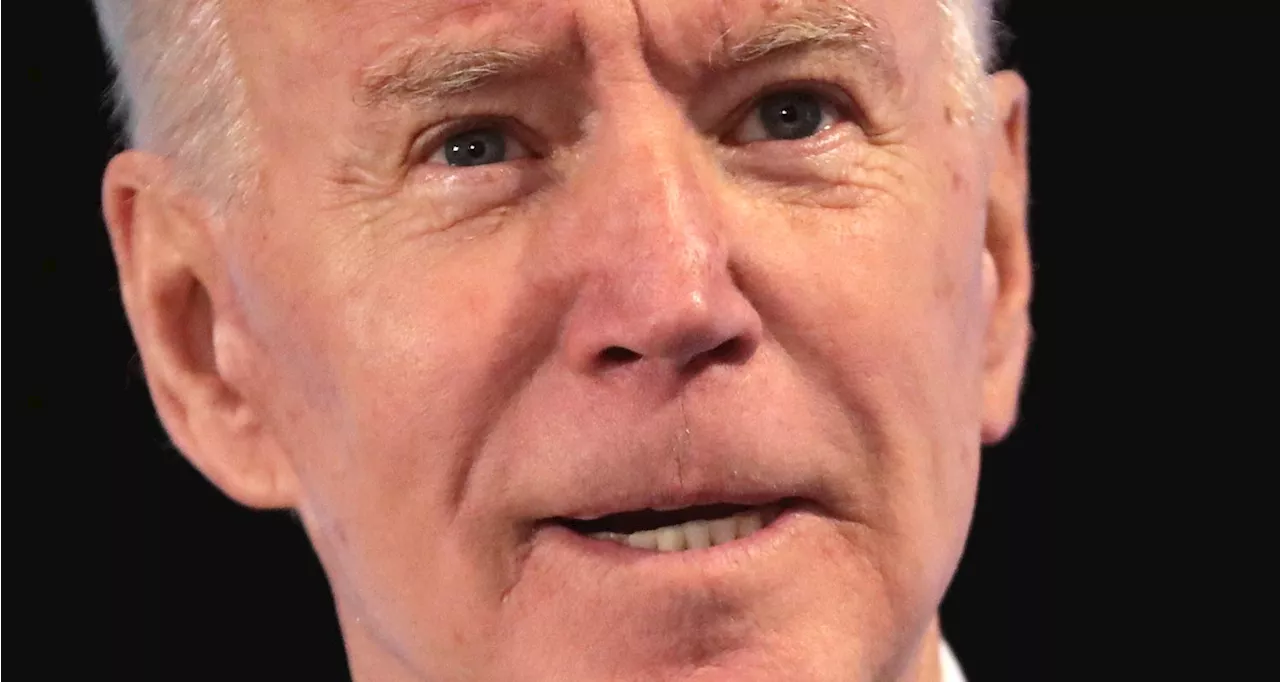 US Blacklists Chinese AI Startup Zhipu, Tightening Grip on Chip Flow to ChinaThe US Department of Commerce has placed Zhipu, a Chinese AI startup backed by Tencent, on its Entity List, restricting US companies from selling to the firm. This move, part of a broader effort to control the flow of advanced chips to China, aims to hinder the development of AI capabilities in the country.
US Blacklists Chinese AI Startup Zhipu, Tightening Grip on Chip Flow to ChinaThe US Department of Commerce has placed Zhipu, a Chinese AI startup backed by Tencent, on its Entity List, restricting US companies from selling to the firm. This move, part of a broader effort to control the flow of advanced chips to China, aims to hinder the development of AI capabilities in the country.
Read more »
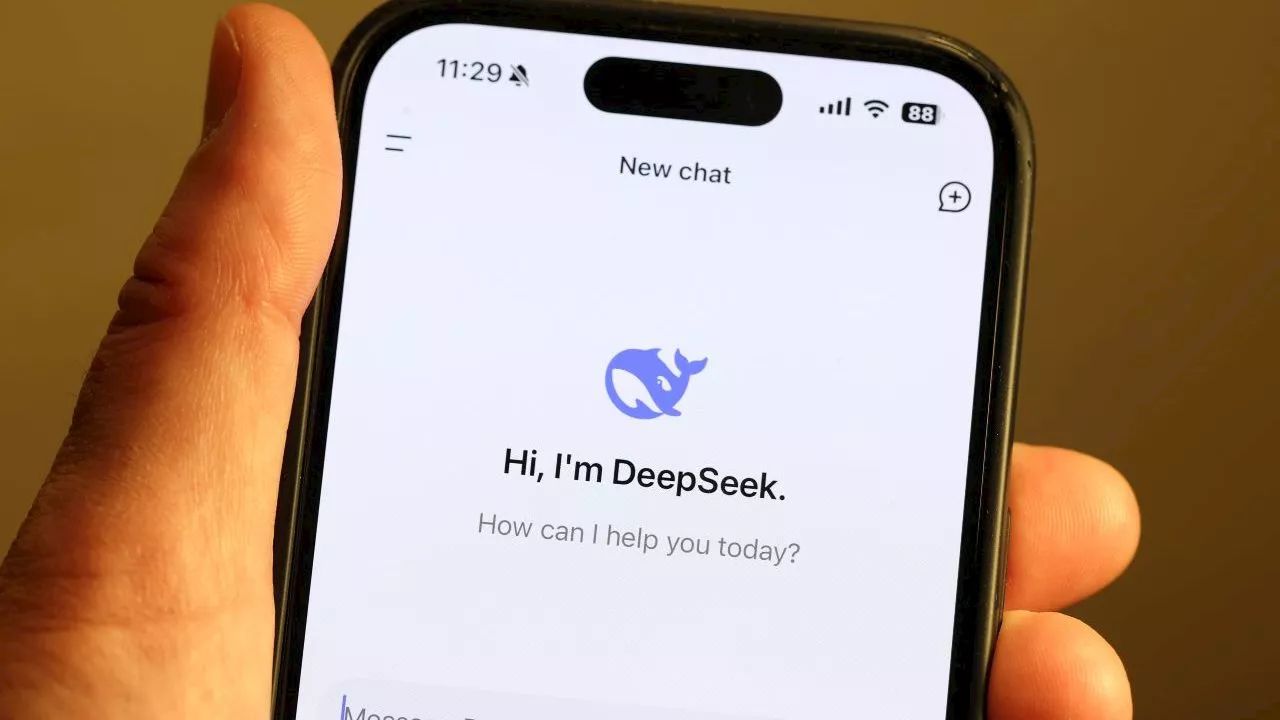 Chinese Startup DeepSeek Makes Waves with Competitive AI ModelDeepSeek, a Chinese startup founded just a year ago, has unveiled its R1 AI model, which rivals leading models from OpenAI, Meta, and Google in performance but at a significantly lower cost. This achievement, made possible with a reported investment of only $5.6 million, challenges the perception of American dominance in the AI field, especially given the U.S.'s efforts to restrict China's access to advanced AI chips. DeepSeek's open-source approach further fuels its competitive edge, allowing developers worldwide to contribute to its development.
Chinese Startup DeepSeek Makes Waves with Competitive AI ModelDeepSeek, a Chinese startup founded just a year ago, has unveiled its R1 AI model, which rivals leading models from OpenAI, Meta, and Google in performance but at a significantly lower cost. This achievement, made possible with a reported investment of only $5.6 million, challenges the perception of American dominance in the AI field, especially given the U.S.'s efforts to restrict China's access to advanced AI chips. DeepSeek's open-source approach further fuels its competitive edge, allowing developers worldwide to contribute to its development.
Read more »
